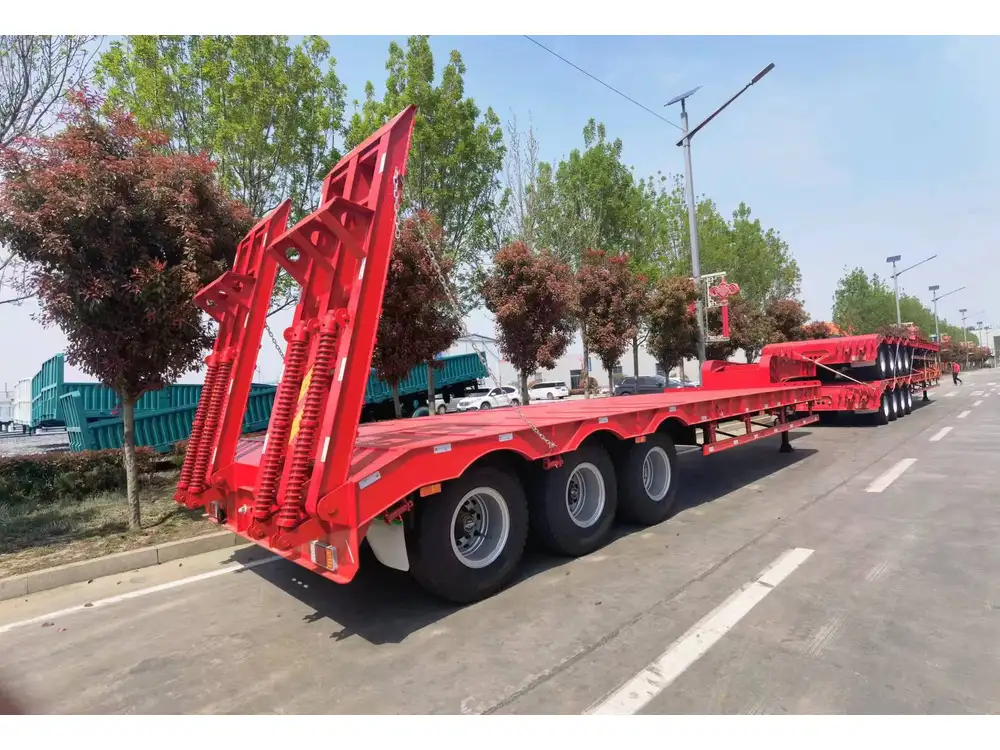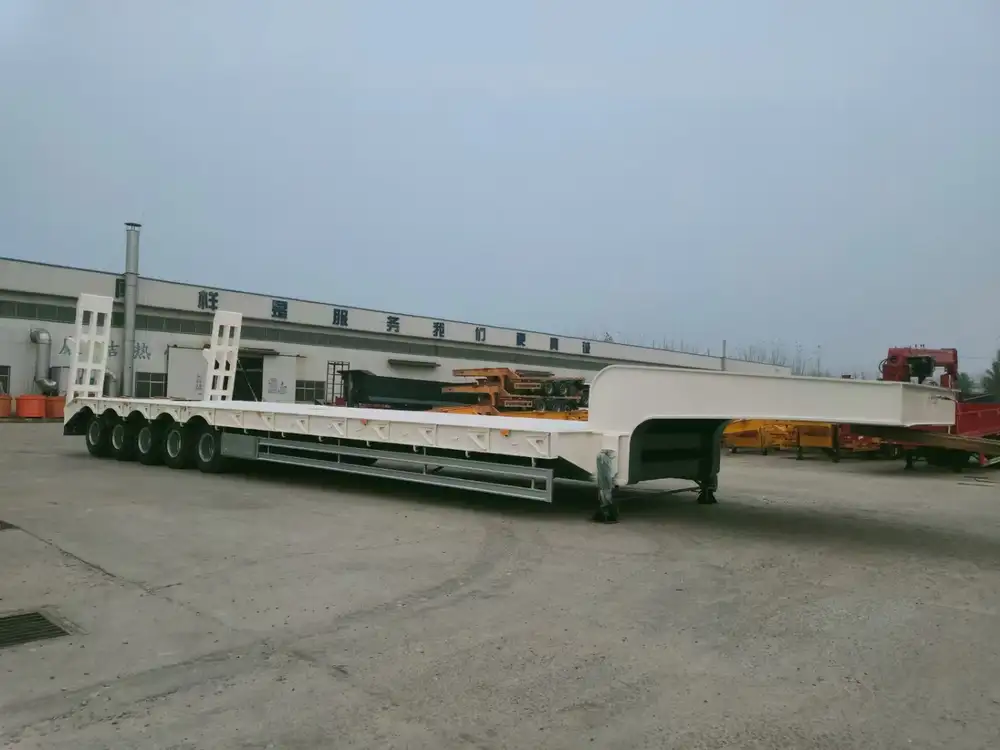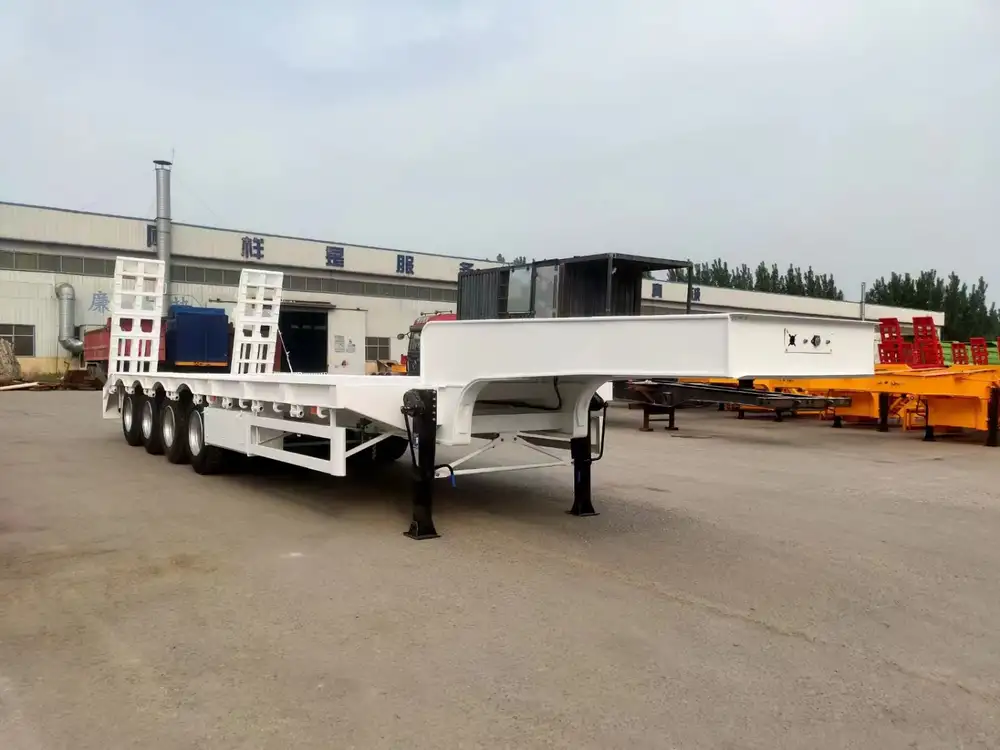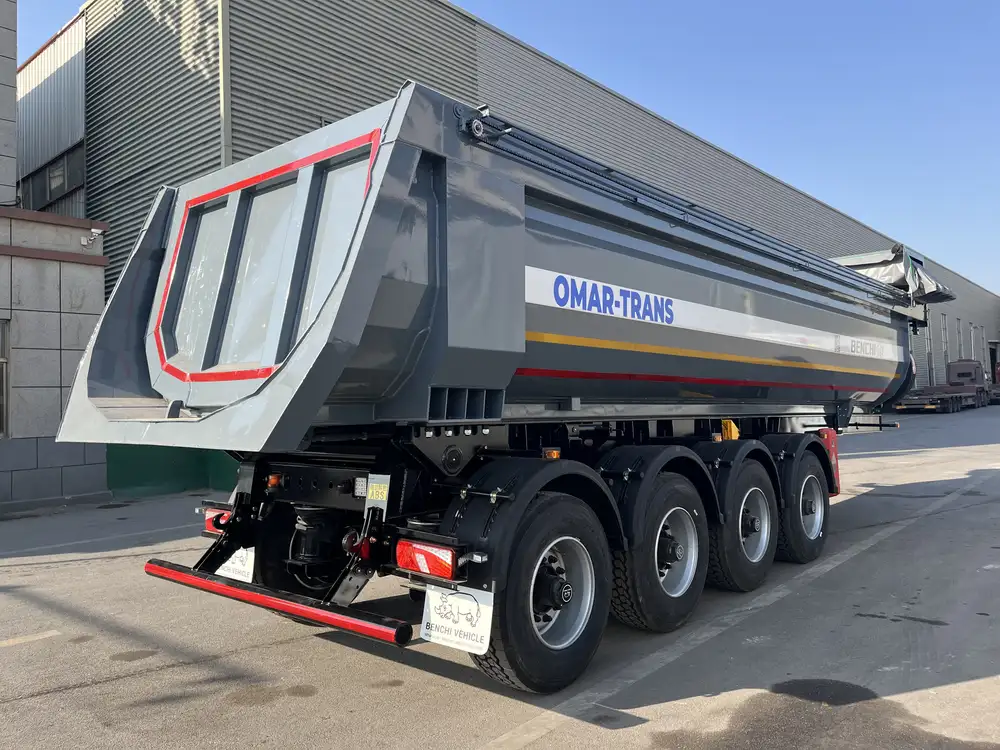When businesses and individuals find themselves in need of heavy-duty logistics solutions, the quest for the perfect semi-trailer rental can transform into a complex challenge. With diverse options flooding the market, understanding where to rent a semi-trailer not only cultivates efficiency but also dramatically impacts operational costs and transportation speed. In this guide, we will dissect the factors influencing this decision and illuminate the various avenues available for securing a semi-trailer rental.
Types of Semi-Trailers Available for Rent
Understanding the specifics of the semi-trailers available for rental is pivotal. Here’s a breakdown of some of the most common types:
| Type of Semi-Trailer | Description | Ideal For |
|---|---|---|
| Flatbed Trailers | Open trailers without sides or a roof. | Construction materials, equipment transport. |
| Enclosed Trailers | Fully enclosed trailers to protect cargo. | Valuable goods, sensitive materials. |
| Reefer Trailers | Refrigerated trailers for temperature-sensitive cargo. | Food transport, pharmaceuticals. |
| Drop Deck Trailers | Lower deck to accommodate tall loads. | Machinery, oversized equipment. |
| Tank Trailers | Designed to carry liquids. | Fuel transport, chemical products. |
| Side Loader Trailers | Equipped with a loading mechanism for side access. | Easy loading/unloading of containers. |
Key Considerations in Choosing a Trailer Type
Selecting the right type of semi-trailer hinges on several factors critical to your needs:
- Cargo Type: Determine whether you are transporting perishables, machinery, or construction materials.
- Distance: Consider how far the trailer will need to travel, impacting design and durability preferences.
- Time Frame: Urgency can influence the choice; faster loading and unloading options may be preferable.
- Weight Limits: Each trailer type has its own weight capacity—knowing yours ensures legal compliance and safety.

Factors to Consider When Renting a Semi-Trailer
As with any rental decision, understanding various influencing factors can shape a successful partnership. Here, we explore predominant points to consider.
1. Rental Pricing Models
Different rental companies adopt varied pricing strategies. It is crucial to dissect these models to understand long-term implications:
- Daily Rental Rates: Ideal for short-term needs; often, these rates are higher than weekly or monthly considerations.
- Weekly Rates: Cost-effective for extended projects; some companies may offer discounts.
- Monthly Rates: Best for ongoing operations requiring consistent trailer availability.
2. Insurance Requirements
Rental agreements typically mandate comprehensive insurance coverage. Ensure to review:
- Liability Coverage: Protects against property damages or personal injury.
- Cargo Insurance: For reimbursement in case of lost or damaged goods during transport.

3. Condition of the Trailer
Inspect the rented semi-trailer for:
- Wear and Tear: Check tires, brakes, and structural integrity.
- Maintenance Records: A well-maintained trailer minimizes breakdown risk.
- Cleanliness and Hygiene: Particularly critical for trailers transporting perishable goods.
4. Rental Company Reputation
When seeking rental services, prioritize companies with:
- Positive Reviews: Look for feedback online to gauge customer satisfaction.
- Transparent Policies: Clear terms regarding costs, penalties, and insurance.
- Reliable Customer Support: Availability of assistance can save time and stress during emergencies.
Where to Rent a Semi-Trailer: Leading Options
Navigating the market for renting semi-trailers leads us to several potential rental sources. Below are some reputable avenues to explore.

1. Local Dealerships and Specialized Rental Companies
Local dealerships often provide specialized rental services. By forming a partnership with nearby companies, you can benefit from:
- Local Knowledge: Familiarity with regional transport regulations and road conditions.
- Diverse Inventory: Access to various types of semi-trailers suited to different purposes.
2. National Equipment Rental Chains
Reputable chains like Penske or Ryder offer nationwide rentals with the advantage of:
- Standardized Quality: Consistent vehicle upkeep and quality across all locations.
- Extensive Networks: Availability in various markets may lend flexibility in pick-up and drop-off.
3. Online Marketplaces and Platforms
Digital platforms such as U-Haul, or specialized logistics marketplaces, are becoming increasingly popular, due to:
- Convenience: Easy comparison of prices and products without physical visits.
- User Reviews: Access to extensive customer feedback aids in decision-making.

4. Peer-to-Peer Rental Services
Emerging platforms allow users to rent their equipment, fostering a community-sharing approach. This option may provide:
- Competitive Pricing: Often less than traditional rental companies.
- Unique Options: Access to niche trailers not always available in standard inventories.
Usage Strategies for Rented Semi-Trailers
Merely securing a rental is only one aspect; employing effective strategies enhances productivity. Below are strategic suggestions on optimizing trailer usage.
1. Route Planning
In logistics, route planning can significantly influence cost and time:
- GPS Navigation: Use GPS devices for real-time updates on traffic and road conditions.
- Alternative Routes: Prepare multiple paths to avoid delays due to construction or bottlenecks.

2. Load Distribution
Ensure that the load is evenly distributed within the trailer:
- Weight Balance: Improper weight distribution can lead to handling issues and increased fuel consumption.
- Secure Loads: Use straps and other securing mechanisms to prevent shifting during transit.
3. Maintenance Checklists
Before setting out, conduct a thorough inspection:
- Tire Pressure and Condition: Underinflated tires can adversely affect fuel efficiency.
- Brakes and Lights: Ensure that all safety-related features are operational prior to departure.
4. Communication with the Rental Company
Maintain open lines of communication with the rental company throughout the rental period:
- Emergency Contacts: Keep important numbers accessible in case of roadside emergencies.
- Check Reporting Issues: Notify the rental agency immediately of any potential problems for a smooth resolution.

Addressing Common Concerns When Renting a Semi-Trailer
Renting a semi-trailer can evoke numerous questions and concerns. Addressing these noteworthy issues can alleviate uncertainty and guide decision-making.
1. What if the Separate Trailer and Truck Are Inoperable?
Arranging for an immediate solution is essential. Consider:
- Towing Services: Have a reliable towing service on speed dial.
- Backup Resources: Check whether the rental company provides support or alternative vehicles in emergencies.
2. How to Handle Excessive Wear During Rental?
It’s wise to ensure the trailer is adequately inspected for pre-existing damage. Documentation upon pick-up can help prevent disputes afterward.

3. What Are the Environmental Considerations?
Many businesses are looking at sustainability. Explore options:
- Eco-Friendly Trailers: Some companies offer trailers built for reduced emissions.
- Fuel-Efficient Routes: Prioritize strategies for sustainable logistics.
Conclusion
Securing a semi-trailer rental doesn’t have to be an overwhelming process. By understanding the types of trailers available, evaluating rental companies, and implementing strategic usage methods, the journey can become markedly streamlined. This comprehensive guide serves to empower businesses and individuals with the knowledge needed to make informed decisions on where to rent a semi-trailer while navigating challenges with confidence and clarity. As logistics needs evolve, maintaining a focus on quality partnerships, competitive price evaluations, and effective practices ensures that your semi-trailer rental experience is successful and conducive to operational excellence.



